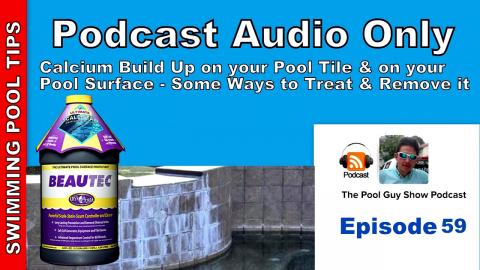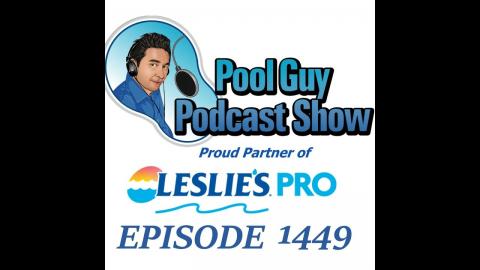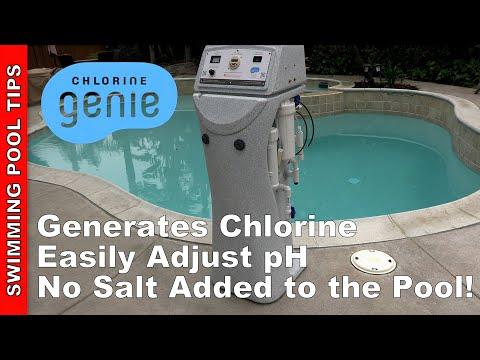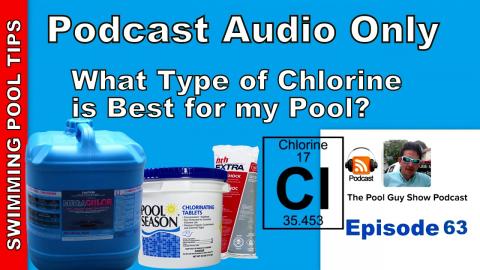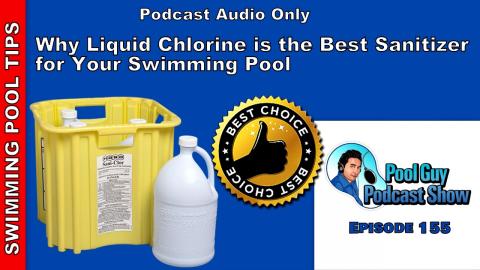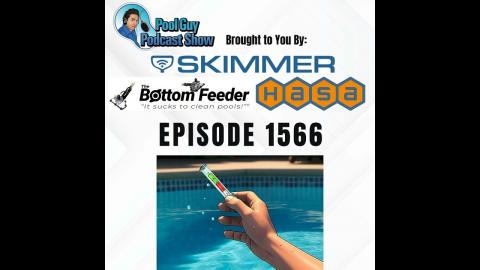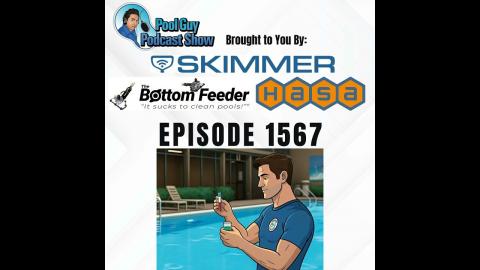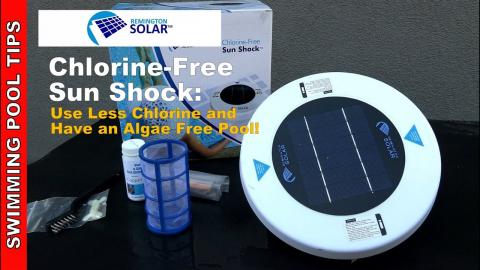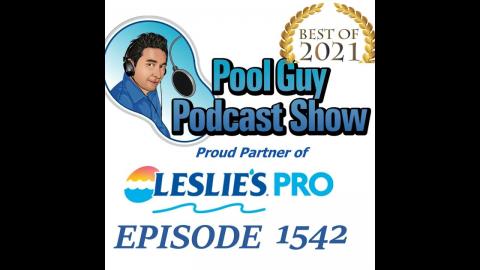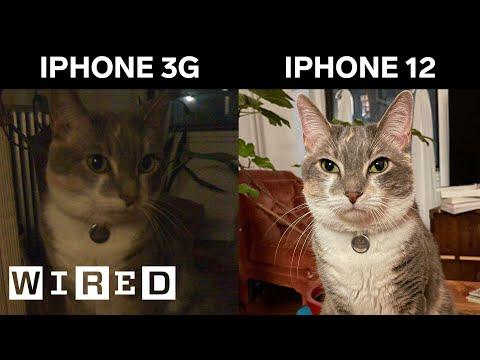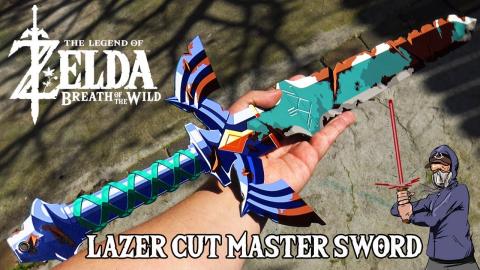Which Chlorine Type is the Best for my Swimming Pool?
Description
There are 6 main types of chlorine products on the market today but two of them are not commonly in use anymore (Gas Chlorine, and Lithium Hypochlorite). The remaining types to choose from are Liquid Chlorine, Cal-Hypo, Tri-Chlor, Dichlor. Each type is very different from the other and knowing more about each is essential in pool care.
Chapter Marks:
00:00 What to Expect in This Video
01:15 Intro
02:08 Not So Common Types
05:24 Liquid Chlorine
14:55 Cal Hypo
19:16 Tri-Chlor
22:48 Dichlor
Liquid Chlorine or Bleach is the tried and true standard chemical of choice for most pool service professionals. It is easy to use and relatively inexpensive and it has the least side effects of any of the chlorine you can choose from. It is usually sold in 12.5% active chlorine per gallon with Bleach coming in at about half that strength at 6.5%. It will raise the pH slightly, but it does not contain any Stabilizer or Conditioner making it ideal for all pool types. This means that when you add a gallon of liquid chlorine and your Conditioner level (CYA) is 50 ppm it will stay at 50 ppm even if you add 20 gallons of liquid chlorine.
Pros:
Fastest acting of all chlorine types
Will not raise your CYA level
Safe for all pool types
Easy to use
Cons:
Breaks down by the Sun’s UV Rays so your pool needs a CYA level of 30-50 ppm
Short shelf life so rotate stock or buy fresh chlorine when needed
Half-life is about 90 days
The gallons can be heavy compared to a bag of shock
Cal Hypo is very popular and there are several reasons why it is widely used in the industry. It is easy to carry and comes in different strengths 60-75% active chlorine. One of the major side effects is that it contains calcium, so over time it will raise your pool’s calcium hardness. Not an issue if you live in an area with soft water but I caution against the use in areas with hard water. It also has a high pH of around 12 so it will raise the pH in a pool if you use a significant amount each week. It can also make the pool cloudy if you pour a bag directly in. A very powerful form of shock.
Pros:
Strong and easy to use
Does not contain a Conditioner so it will not raise the pool’s CYA levels
Cal Hypo Tablets dissolve slowly over a week and don’t raise the pool’s CYA level
Safe for all pool surface types but use caution with a vinyl liner
Cons:
Raises Calcium Harness in a pool
Raises the pH in a pool
Clouds up the pool water if poured directly in
Dichlor is a very popular form of chlorine and the granular form makes it very easy to measure and use in a pool. It is pH neutral which means it will not raise or lower the pool pH in any significant way. It does contain Cyanuric Acid (CYA), about 50%-65% by weight. So, if you add 10 lbs. of Dichlor to a pool you are also adding about 6 lbs. of CYA. Over time this will increase the pool’s CYA levels.
Pros:
Easy to use and powerful
pH neutral
Safe for all surface types
Long the shelf life of 2-3 years
Cons:
Adds Conditioner to the pool
Expensive so not practical in most applications
Tri-Chlor or Trichloroisocyanuric Acid comes in three forms. The familiar 3” tablets that slowly dissolve in your pool, a very fine powder shock and a granular form. About 50% of the Tri-Chlor by weight is Conditioner. So, a 50 lbs. bucket of tablets is about 25 lbs. of CYA. If you overuse tablets your pool’s CYA level can go up rapidly. Trichlor tablets are usually 95% to 99% active chlorine. Tri-Chlor tablets have a very low pH of 2-3 so they will lower the pH in your pool. The tablets contain acid in the form of Cyanuric Acid so if one falls into the pool it is likely to stain the surface by burning it.
Tri-Chlor granular is very powerful stuff. It is the Tri-Chlor Tablet grounded up in granular form and is 99% active chlorine. Use with extreme caution as the Conditioner in the granular can stain the plaster. The CYA in the tablet is acid and if you let it pile up on the pool surface it will stain the plaster as if you dropped a 3” Tablet into the pool. Never add this to the skimmer and if you do use it for Black or Mustard algae make sure it is evenly dispersed on the pool surface. Not for use in Vinyl, Fiberglass, or color plaster pools.
Pros:
Very strong and slow dissolving in tablet form so it releases chlorine all week long
Easy to use
Cons:
Can stain the pool surface
Contains 50% CYA by weight
Expensive in today’s inflationary environment
Visit my Website: http://www.swimmingpoollearning.com/
eBook: https://www.swimmingpoollearning.com/swimming-pool-care-ebook
YouTube Video Index: http://poolmandave.blogspot.com/2014/03/swimming-pool-tips-reviews-how-to-video.html – A list of all of my videos.
Blogger: http://poolmandave.blogspot.com/


